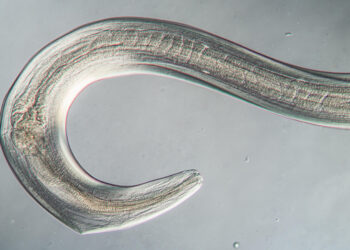TOPLINE:
A cohort study of children in the United Kingdom found that early childhood atopic dermatitis (AD), especially when mild, is not associated with executive function (EF) deficits in middle childhood.
METHODOLOGY:
- Researchers analyzed 11,373 children (51.5% boys; > 95% White individuals) from the UK-based Avon Longitudinal Study of Parents and Children, with parental reports of AD activity and severity in their children between ages 6 and 81 months.
- AD activity and severity of children were assessed using maternal questionnaires at two or more of seven timepoints between 6 months and 7 years of age, focusing on itchy, dry skin rash in joints and creases, such as behind the knees. At 81 months, data was available for 8208 children, 81% had no AD and 19% had varying degrees of AD activity and severity.
- Using latent class mixed modeling, researchers classified children into five distinct early childhood AD trajectories: Unaffected/rare (62.90%), early onset resolving (1.09%), persistent mild (31.35%), persistent moderate to severe (0.93%), and worsening (3.74%).
- EF, specifically attention regulation, inhibition, and working memory, was measured at ages 8, 10, and 11 years, adjusted for covariates.
TAKEAWAY:
- No statistically significant differences were detected across AD trajectories in selective attention, divided attention, and attentional control at ages 8 and 11 years, inhibition at age 10 years, and working memory at ages 8 and 10 years.
- Similarly, no statistically significant associations were observed between AD severity status at 81 months and EF outcomes in middle-childhood.
IN PRACTICE:
“The role of EF in the relationship between childhood AD and neuropsychological outcomes is an understudied area,” the authors wrote, “but together with prior research, the current study supports the conclusion that EF impairment is not a major mechanism driving this relationship, at least in a sample of nonadolescent children with largely mild AD.”
SOURCE:
The study was led by Elle Kim, Department of Dermatology, Johns Hopkins University School of Medicine, Baltimore, and was published online on May 2025 in Journal of the European Academy of Dermatology and Venereology.
LIMITATIONS:
Only a small portion of the study population experienced moderate or severe disease, which limited the statistical power to detect effects in more severe cases. Other limitations included potential selection bias, lack of information about treatments for AD, and limitation of generalizability to non-UK populations.
DISCLOSURES:
The study was supported by the National Institutes of Health. Some authors reported receiving research and fellowship funding from and having other ties with various sources, including Pfizer, Sun Pharmaceuticals, La Roche Posay. One author also declared holding patents, being a deputy editor, and being a member of the Board of Directors for the International Psoriasis Council and the Medical Dermatology Society.
This article was created using several editorial tools, including AI, as part of the process. Human editors reviewed this content before publication.
Source link : https://www.medscape.com/viewarticle/childhood-atopic-dermatitis-shows-no-impact-executive-2025a1000eir?src=rss
Author :
Publish date : 2025-05-30 05:20:00
Copyright for syndicated content belongs to the linked Source.














